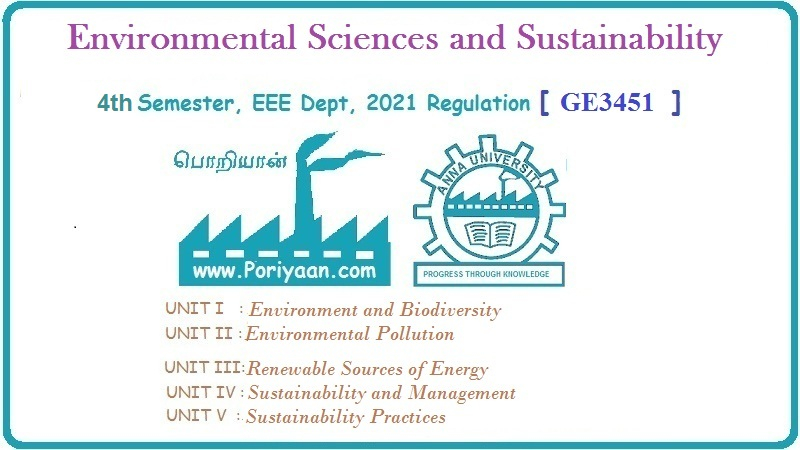Environmental Sciences and Sustainability: Unit IV: Sustainability and Management
Sustainable Agriculture
Goal, Principle, Benefits | Sustainability
• Sustainable agriculture is a type of agriculture of producing food grains, fibers, plants, animal products or live stocks using farming techniques that protect the environment, public health, human communities and animal welfare.
Sustainable Agriculture
•
Sustainable agriculture is a type of agriculture of producing food grains,
fibers, plants, animal products or live stocks using farming techniques that
protect the environment, public health, human communities and animal welfare.
•
The sustainable agriculture enables us to produce healthful food without
compromising future generations' ability to do the same.
•
Sustainable agriculture integrates three main goals - environmental health,
economic profitability and social and economic equity.
•
The goal of sustainable agriculture is the responsibility of all participants
in the system, including farmers, labourers, policymakers, researchers,
retailers and consumers. Each group has its own part to play, its own unique
contribution to make to strengthen the sustainable agriculture community.
•
Several other goals of sustainable agriculture are conserving water, reducing
the use of fertilizers and pesticides and promoting biodiversity in crops grown
and the ecosystem.
•
Sustainable agriculture also focuses on maintaining economic stability of farms
and helping farmers improve their techniques and quality of life.
1. Benefits of Sustainable Agriculture
•
There are many benefits of sustainable agriculture and broadly they can be
divided into human health benefits and environmental benefits.
1.
Human health benefits
•
In terms of human health, crops grown through sustainable agriculture are
better for people. Due to the lack of chemical pesticides and fertilizers,
people are not being exposed to or consuming synthetic materials. This limits
the risk of people becoming ill from exposure to these chemicals.
•
In addition, the crops produced through sustainable agriculture can also be
more nutritious because the overall crops are healthier and more natural.
2.
Environmental benefits
•
Sustainable agriculture has also had positive impacts of the environment. One
major benefit to the environment is that sustainable agriculture uses 30 % less
energy per unit of crop yield in comparison to industrialized agriculture. This
reduced reliance on fossil fuels results in the release of less chemicals and
pollution into the environment.
•
Sustainable agriculture also benefits the environment by maintaining soil
quality, reducing soil degradation and erosion and saving water.
•
In addition to these benefits, sustainable agriculture also increases
biodiversity of the area by providing a variety of organisms with healthy and
natural environments to live in.
Environmental Sciences and Sustainability: Unit IV: Sustainability and Management : Tag: : Goal, Principle, Benefits | Sustainability - Sustainable Agriculture
Related Topics
Related Subjects
Environmental Sciences and Sustainability
GE3451 ESS 4th Semester | 2021 Regulation | 4th Semester EEE Dept 2021 Regulation
